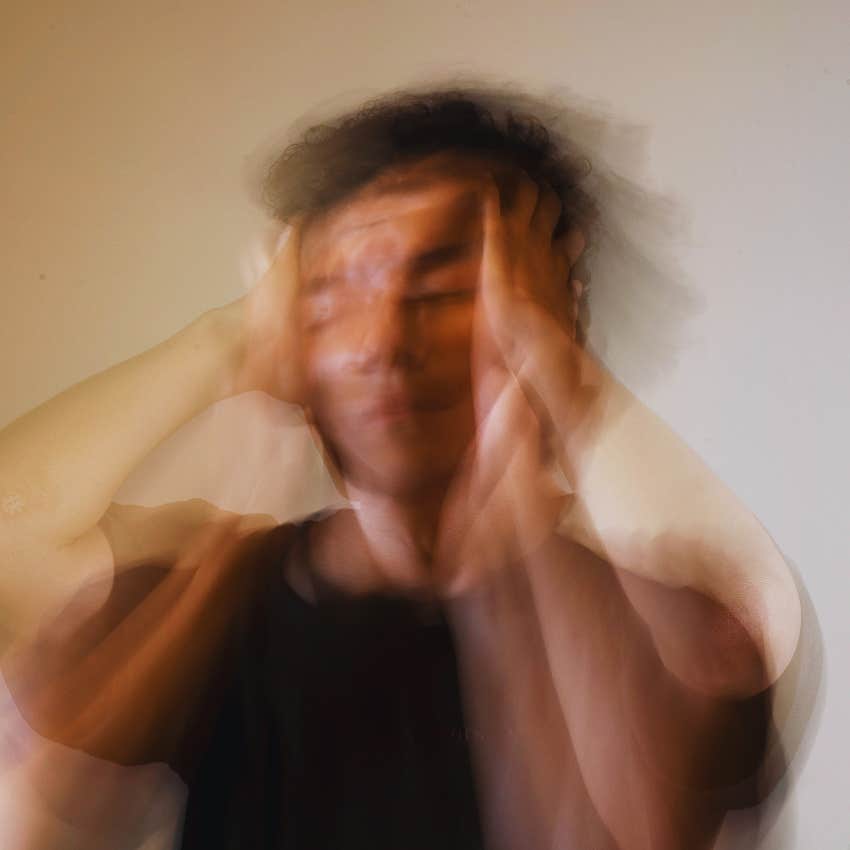What Waaay Too Many People Still Get Wrong About Men
You might think you have it all figured out, but there's more to men than we tend to acknowledge or recognize
 Monkey Business Images / Shutterstock
Monkey Business Images / Shutterstock For hundreds of thousands of years, men have been the primary hunters and warriors for our family and community. These roles still exist today but under different names — “Provider” and “Protector.”
These roles have been so important for men because men cannot create human life in their bodies, so we have to protect the women of our family and community if our species would be able to continue.
Over time as our species developed, men remained much more.
While the ability to throw an object overhand with high speed is specific to male human beings, many other species are similar to humans in our arrangement of “gender roles” — with the males being more physically powerful than females of the same species as a result. In fact, this is much more the rule than the exception — especially with mammals.
In addition to physical power, men have feelings too.
Along with the influence of nature and evolution on the physical body of men, men also developed an ability to get pumped up — then also calm down a lot more quickly — than our female peers.
This is usually a surprise for many people to learn because we get so filled with a false belief system that, “Men are just dumb jocks who get resources and fight”, that we don’t also have feelings! This could not be further from the truth.
Studies have actually shown that men are “more emotional” than women in that the “hypothalamus” — the part of our brain that determines a threat and signals a stress response to the rest of our body — is more active in men, not less.
This means that with relatively less agitation, the brain of a man is much more likely to perceive a threat and dump cortisol and adrenaline into the bloodstream — resulting in a fight/flight reaction. Men are actually more emotional!
Men have feelings too, but Western culture promotes emotional restriction and "stoicism."
This goes against many old assumptions and false belief systems about men “being less emotional”, but it actually makes a lot of sense once we think about it.
The creation of modern technology allows us to see a threat coming from miles away — sometimes even weeks, or months out — depending on the type (weather, politics, disease, etc).
This is also a brand new development, especially when you consider how long human beings were here on the planet before the industrial revolution, let alone electricity in every home and now, artificial intelligence in our pocket with smartphones.
Before modern technology, we had minutes — sometimes seconds to get the news that the antelope is herding, or that the neighboring tribe is coming to kill us and our loved ones — so we better get pumped — and fast!
Men who were slower to get upset as quickly did not survive as well, and neither did their communities because it was more likely that their men would be less successful in battle and/or on a hunt.
Isn’t it weird that there is such a basic assumption around men being less emotional, while in reality, it is actually the opposite? Would you like to know why?
Men have feelings too — just like women — even though Western culture demands that men push down emotions — especially vulnerable ones.
It comes down to our culture — and by “our culture” I am referring to general American culture — largely borrowed from Western European countries like England, France, and Wales. These countries were the main powers responsible for colonizing the New World, so their leadership had the most influence in shaping the foundation for the culture in those places they colonized.
These traits were helpful for the authority figures of our history to continue centralizing and protecting their power, so the social and cultural traditions carried on through the times of isolated farming communities until very recently.
There are many similarities between American and Australian cultures because they came mainly from the British Empire — with a strong dash of tough frontiersman mentality — independent, emotionally restricted, highly competitive, risk-taking, and ruthless in the name of “taking care of business.”
These social and cultural traits for men are often referred to as characteristics of “toxic masculinity” by social sciences over the last few decades and recently, the American Psychological Association (APA) went as far as to make a formal statement with treatment recommendations for practitioners.
We prefer to use the term “Traditional Manhood” because there are some beautiful and amazing aspects of manhood, but some of these beliefs that have been passed down to us about what it means to be a “Real Man” and to “Man Up” are downright dangerous.
The assumption that men don't have feelings is a big part of the problem.
The gender-specific recommendations for mental health support for men could not have come a minute too soon.
Over the last 15-20 years, the mental health of men has deteriorated to such as degree that suicide, drug overdoses, and alcohol toxicity — a category of fatalities called “Deaths of Despair” — have claimed the lives of so many young men that it has driven down the life expectancy of American men over the last several years.
Can you imagine this? As science and Western medicine continue to develop new “cutting edge” technology each year, the average lifespan of men has dropped more years than not since 2015!
Women are continuing to live longer lives, but men are dying younger and younger — largely due to self-neglect, social isolation, and substance abuse as an attempt to numb the pain until eventually taking one’s life — either directly through suicide or indirectly through overdose.
While it might not seem like a big deal, emotional stoicism/restriction can be seen as a factor of "toxic masculinity" when it keeps us from meeting our own loved and belonging needs, which is one of the most prominent protective factors against male suicide.
It does not have to be this way and in fact — this shouldn't be happening at all.
As human beings, us men come programmed to be thinking and feeling beings who need satisfying and meaningful relationships with other human beings — just like our female peers.
We are taught as boys that a “Real Man” proves their value and worth by “being successful” — as evidenced by winning in competition against others for external rewards from the outside world — rather than personal satisfaction and fulfillment.
Boys are taught that “Intelligence” is about reason/rationality exclusively and that emotions make a man “flaky” or “soft, and that a “Strong Man” proves their toughness by showing no fear and no pain in the face of hard times. And a request for help? Boys are taught asking for help means that we are “weak and dependent” — not worthy of social respect and a high-quality mate.
Men have feelings too — just like any other human being — and those feelings are a big part of our overall health and well-being.
When these traits of traditional manhood are on their own and/or less intense, they can be helpful and adaptive with intentional use.
On the other hand, if a man is using several of these at one time — or does not have good enough impulse control for whatever reason — you can see how a situation can get dangerous.
We have emotional experiences because they help guide our moment-to-moment experiences and resulting decision-making in a way that allows us to stay connected to our integrity — the “guiding light” of our life’s purpose - as well as inform healthy boundaries so we can stay connected to friends and loved ones at the same time.
Men have feelings too and our transformation demands we learn to access a full range of emotional intelligence.
 Photo: Laura Mogollon / diversifylens via Canva
Photo: Laura Mogollon / diversifylens via Canva
This type of balance can only be created when we have a full range of emotional intelligence to bring it all together, but these social and cultural lessons are not available for most boys growing up.
And if a young man does not know how a full range of emotional intelligence can be used to guide purpose and passion, then how are they supposed to be aware of the possibilities?
The short answer is “You can’t know what you don’t know,” unless you have lived with monks in a monastery for a year, volunteered with the Peace Corps, or sought “enlightenment” through some other Journey, most men are lost in the dark.
Are you ready to turn on the light?
Logan Cohen, LMFT, is a therapist and trauma coach. He is the author of "How to (Hu)Man Up" and is the the founder of New Leaf Counseling Group and Healing Humanity.

